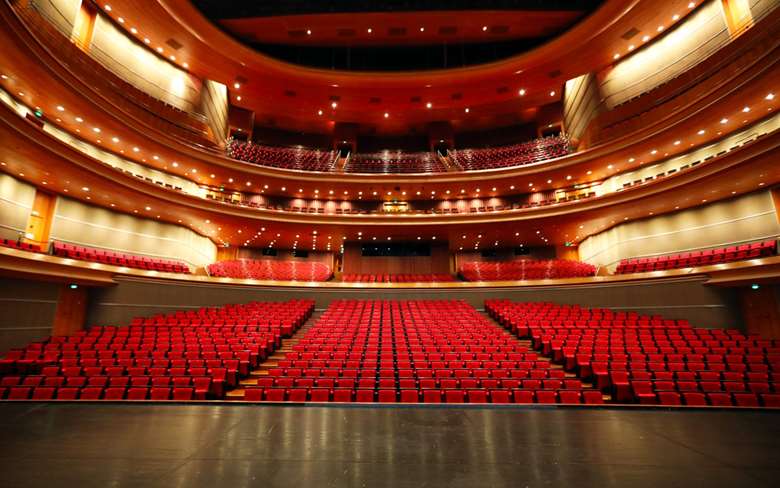Letter to the editor: Thomas Yaksic Beckdorf on the UK's declining taste for classical music
Thomas Yaksic Beckdorf
Tuesday, May 20, 2025
Artist manager and CM subscriber Thomas Yaksic Beckdorf offers his view on the existential threat declining music education in the UK presents to the pipeline of future musicians – and their audiences


At a time when orchestras are struggling financially and music education in state schools has been in steady decline, it is remarkable that the UK still boasts several outstanding orchestras and extraordinary musicians. Credit must be given to the dedicated management teams and musicians who have fought to keep these institutions alive. But let’s not be blind to reality – we are still reaping the benefits of a system that no longer exists.
Many of the British musicians who perform in our orchestras today developed their talent under an educational system that once nurtured music in state schools. While world-class conservatoires such as the Royal College of Music and the Royal Academy of Music continue to attract local talent, the reality is that without good music education in state schools, only those who have attended private schools with strong music programs will have a real chance of applying. The numbers already reflect this shift – conservatoires are now seeing a higher proportion of applicants from private schools than in previous generations.
“If children and young people aren’t exposed to classical music, they won’t develop an appreciation for it”
If the concern were merely for the dearth of classical musicians, one might rest assured that, as in other sectors of the economy, the UK could import talent, so that a lack of local artists would not preclude the existence of local orchestras. Some countries are well-positioned for this, investing heavily in music education, ensuring a steady pipeline of world-class performers. Take China, for example, which is home to over 80 professional orchestras, and sees millions of children study music from a young age.
The real concern is the dearth of creative talent altogether. We should remember that classical music education is central to developing other brilliant music genres and crossover styles, and that many popular artists, like Elton John, were trained in classical music.
This brings us, moreover, to the issue of education and taste. If children and young people aren’t exposed to classical music, they won’t develop an appreciation for it. And if future generations don’t value classical music, there will be no audiences, no policymakers advocating for its survival, and no sponsors willing to invest in it.
“Let’s not be blind to reality – we are still reaping the benefits of a system that no longer exists”
Furthermore, we don’t study music solely because we want to be musicians, much the same way as we don’t study maths to be mathematicians. Music and music education foster valuable skills including cognitive development, emotional expression, cultural awareness, social skills, discipline, creativity, well-being, and lifelong opportunities.
Having lived in London for almost four years, I have noticed a stark absence of classical music outside the bubble of concert halls and festivals. I almost never hear classical music in pubs, parks, or public spaces. Yet classical music has long been part of Britain’s cultural capital, producing legendary composers, musicians – and audiences.
“Classical music belongs to everyone, and if we are serious about its survival, we must embed it back into our daily lives”
We need cities that breathe music – much like Vienna or Munich, where classical music is part of everyday life. Last year, the City of Birmingham Symphony Orchestra (CBSO) performed over 25 concerts in public spaces of the city in one week, including on trams, where principal conductor Kazuki Yamada played the keyboard for passengers. These initiatives break classical music out of its traditional bubble, making it accessible, pedestrian – and relevant.
We need more of these ideas. Perhaps pubs could make use of their old upright pianos for intimate recitals; players could visit schools to inspire the next generation; home concerts could make a comeback, just as they were once central to British musical life; communities could dust off old instruments from attics and donate them to schools; shops could play classical music, reintroducing it into the urban soundscape.
Classical music belongs to everyone, and if we are serious about its survival, we must embed it back into our daily lives. We need more classical music. Before it’s too late.
Thomas Yaksic Beckdorf (pictured above, © Ignacio Sanhueza) Artist manager and CM subscriber Thomas Yaksic Beckdorf offers his view on the existential threat declining music education int he UK presents to the pipeline of future musicians – and their audiencesis a lawyer with a background in music studies and an MSc in Social Anthropology from LSE, who developed his career as artistic manager, producer and casting director in opera theatres in Chile and Brazil. He has acted as jury member of international music competitions, and has been invited as guest speaker, appeared in the media and written columns to discuss artistic programming, arts education, and sustainable management of performing arts institutions. He founded TYB Arts in 2023.

